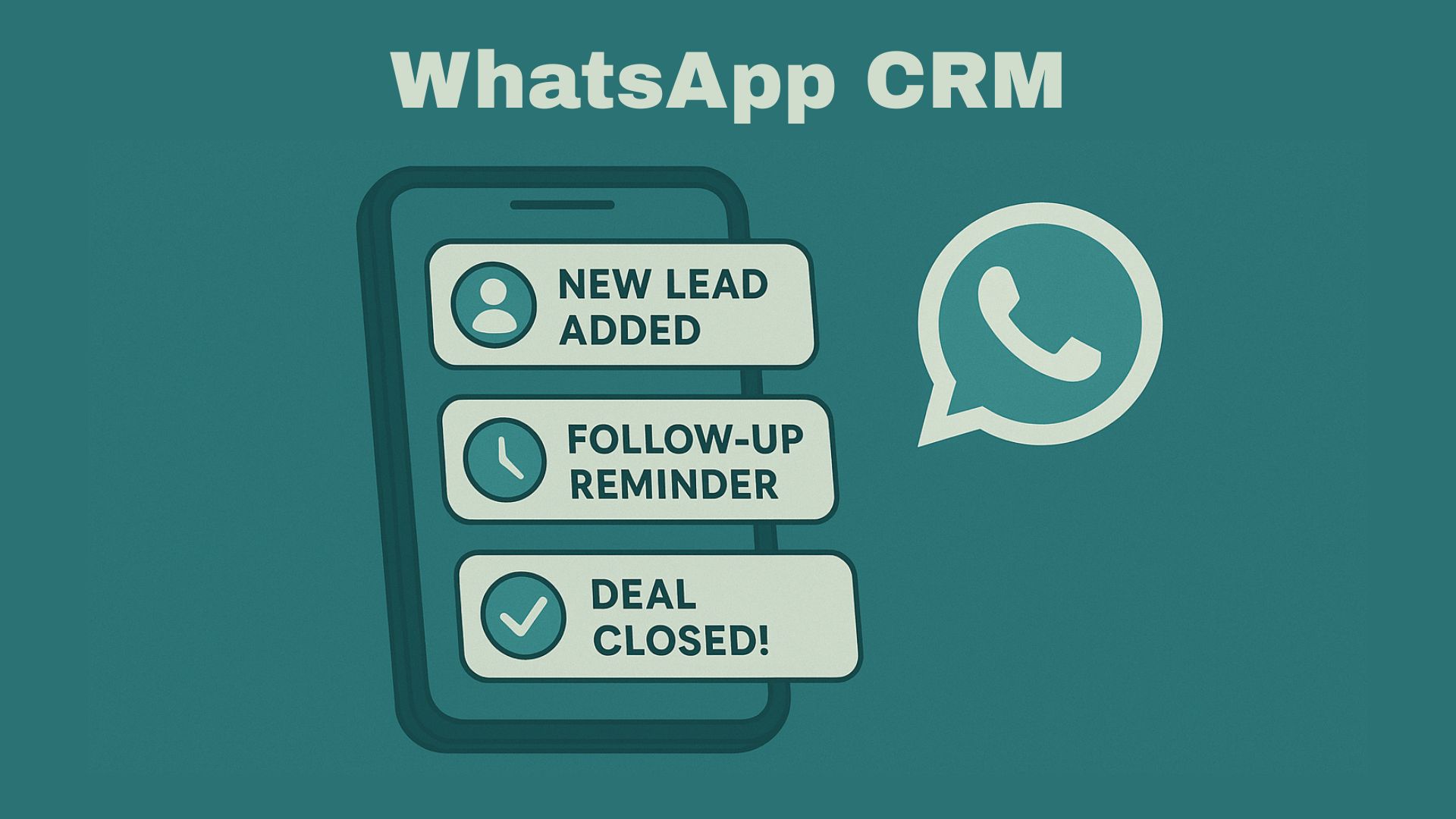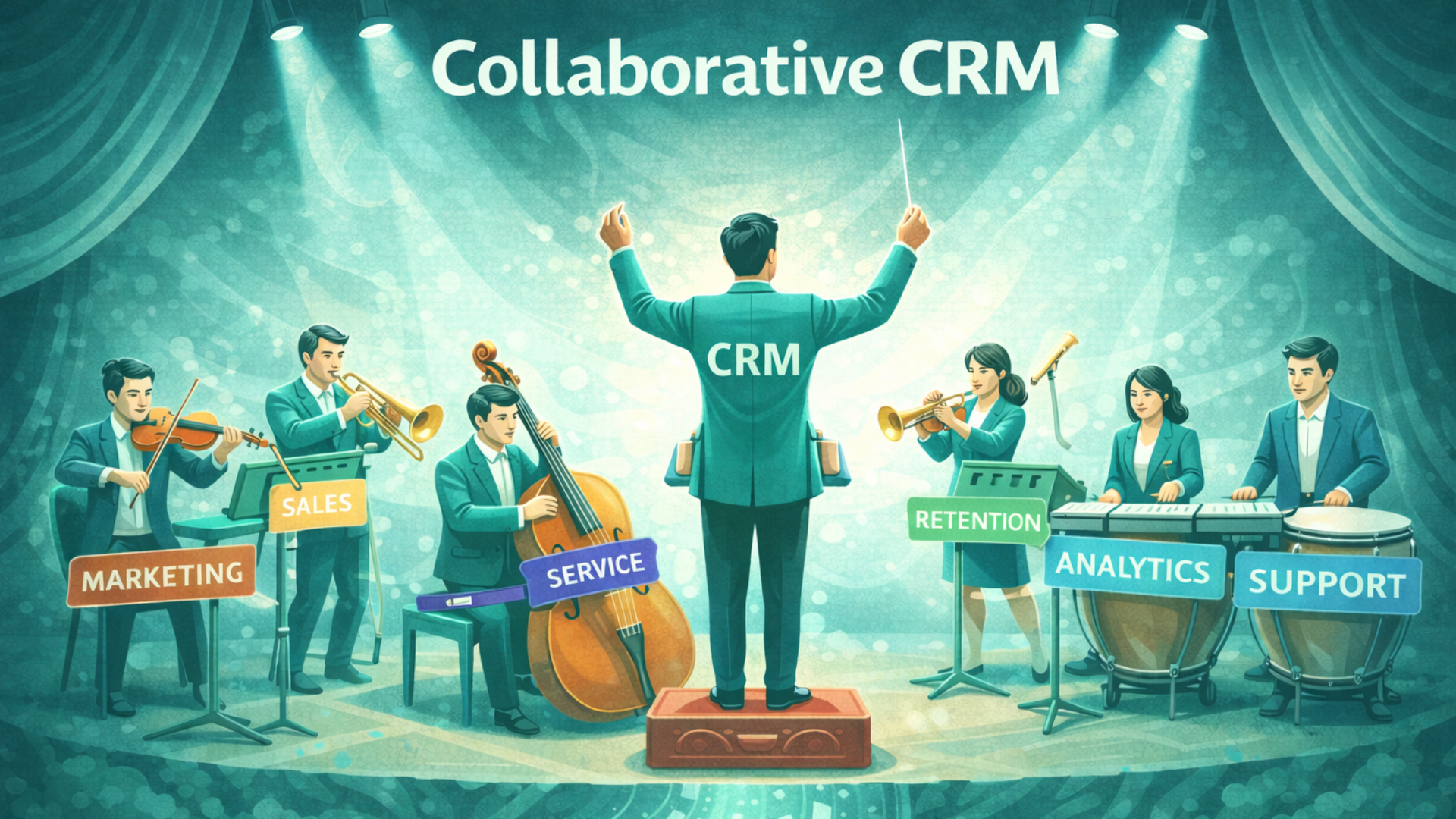

WhatsApp is used globally and in India on a massive scale where millions of people interact with businesses on a daily basis. Whatsapp business also has hundreds of active users - indicative of its potential for immediate reach and high open rates.
For instance, according to Wanotifier, an estimate of 175 million people interact with a business on WhatsApp every day, and WhatsApp Business reported very large MAU figures in late 2024. That makes the channel an obvious place to invest for support, notifications and even sales outreach.
In simple terms, WhatsApp CRM software helps businesses manage WhatsApp conversations inside a CRM system, so every chat is tracked, assigned, automated, and measured like any other sales or support interaction.
Below is a practical, research-backed guide to WhatsApp CRM integrations: what they are, which CRMs support them, use cases, and possible workflows.
What is WhatsApp CRM software?
Unlike using WhatsApp Business alone, a WhatsApp CRM software is designed for teams, automation, reporting, and scalability - not just 1:1 messaging.
WhatsApp Business vs WhatsApp CRM software
Key Strategic Differences
Data Security: In the Business App, customer data lives on a physical phone. If the phone is lost or an employee leaves, the data is gone. In a CRM, the data belongs to the company database.
The "Double-Reply" Problem: The App doesn't show you if another team member is already typing a response. A CRM "locks" a conversation to one agent to prevent duplicate or conflicting replies.
Proactive Growth: A CRM allows you to trigger automated messages based on outside actions - for example, sending a WhatsApp message automatically the second someone abandons a cart on your website.
How does Whatsapp + CRM integration work?
At a high level, messages flow like this:
- Customer messages your WhatsApp Business number (or clicks a CTA).
- A WhatsApp API provider (Twilio, MessageBird, 360dialog, Infobip, WATI, Gupshup, etc.) receives the message and forwards it to your CRM or connector.
- In a shared CRM, the CRM will present the message tied to a contact record, trigger workflows (auto-acknowledge, assign to rep), and log the full conversation in the contact timeline.
- For outbound templated messages outside the 24-hour session window, the CRM sends approved templates via the provider; Meta charges a template fee and the provider adds their fee.
Two common integration models:
- Native CRM connectors - Offer built-in WhatsApp connectors or partner apps so conversations appear in the CRM inbox. For marketers and sales people, these tools are easiest to use.
- Middleware / BSP route - the CRM connects to a BSP (Twilio, Infobip, MessageBird) which handles API calls, message templates, scaling and regional compliance. This is common for enterprises needing global reach.
Key features to expect from a Whatsapp integrated CRM
- A shared inbox for multiple agents to manage chats and reassign conversations.
- Contact mapping for messages to land on the right record and chat history to be stored.
- Managing message templates and workflow approval.
- Automation: auto-acknowledgement, lead routing, follow-up sequences and bot handoffs.
- Media & interactive support (PDFs, images, buttons, quick replies, payment links).
- Management of consent and opt-in tracking.
- Reporting on messages, response times and conversion.
- Security & compliance: encryption, data retention controls, and PII redaction when needed.
Who should use WhatsApp CRM software?
- Education & admissions teams managing high inquiry volumes.
- E-commerce & D2C brands handling order updates and cart recovery.
- Healthcare & clinics sending appointment reminders.
- Real estate & brokers coordinating site visits.
- Customer support teams with SLA-driven workflows.
Use cases & possible workflows
- Sales lead capture → WhatsApp lead handoff
- Website CTA click → opens WhatsApp conversation via Click-to-WhatsApp.
- Messaging platform captures customer’s initial message, creates a lead in CRM, assigns to SDR, sends acknowledgement template.
- SDR sees conversation in the CRM timeline and replies from a shared inbox. (Goal: reduce response time to <10 minutes.)
Superleap can automate the entire lead assignment and distribution process based on criteria like language, region, or course interest, ensuring every high-intent lead reaches the right agent instantly.
- Order & shipment notifications
- The CRM automatically sends updates via whatsapp to the customers once their online order status changes. For this trigger, templates must be pre-approved.
- Cart abandonment recovery
- A reminder can be sent to the customers in case of abandoned cart using a recovery template along with product catalog link. These conversations can be tracked back to the CRM campaign.
- Support routing & SLA
- Incoming customer messages can be auto-assigned based on keywords or customer tier (VIPs to senior agents). An SLA timer starts in CRM with push alerts in case of missed queries.
- Appointment reminders & confirmations
- When an appointment is scheduled in the CRM, a trigger response is sent twice; 24 hours and 1 hour prior. In case, the customer reverts to this, the CRM record for that appointment is automatically updated.
- There is a list of templates available for appointment reminders, order confirmations, shipping updates with receipts and payment links (templates required for outbound outside 24-hour windows).
- Conversational support / ticketing
- Customers open tickets over WhatsApp and support agents handle them from the CRM shared inbox with SLA tracking.
Conclusion
As much a messaging channel, WhatsApp is an essential business tool when paired with a CRM. It tracks conversations, receives immediate responses carries continuous conversations with customers, acting as a measurable, scalable, and revenue-driving channel.
Heading text
Nunc sed faucibus bibendum feugiat sed interdum. Ipsum egestas condimentum mi massa. In tincidunt pharetra consectetur sed duis facilisis metus. Etiam egestas in nec sed et. Quis lobortis at sit dictum eget nibh tortor commodo cursus.
Odio felis sagittis, morbi feugiat tortor vitae feugiat fusce aliquet. Nam elementum urna nisi aliquet erat dolor enim. Ornare id morbi eget ipsum. Aliquam senectus neque ut id eget consectetur dictum. Donec posuere pharetra odio consequat scelerisque et, nunc tortor.
Nulla adipiscing erat a erat. Condimentum lorem posuere gravida enim posuere cursus diam.




.jpg)
.jpg)
.svg)
